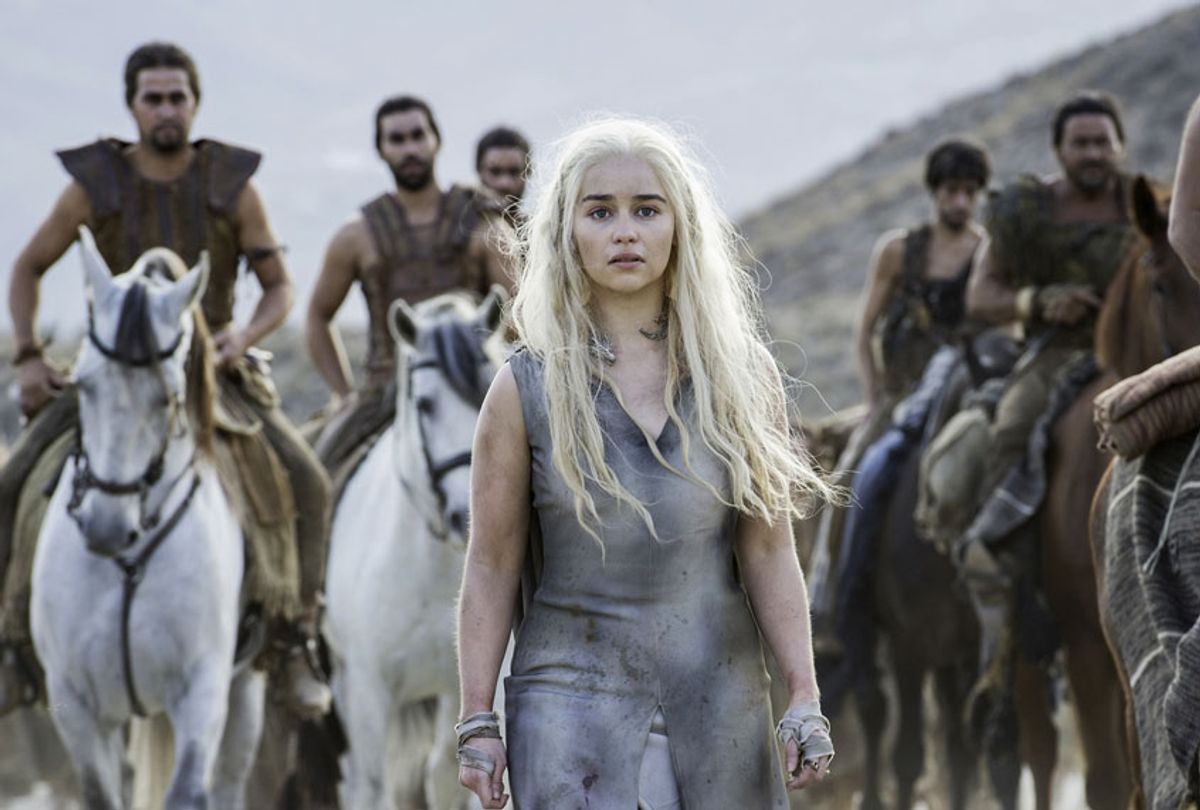Emilia Clarke, the English actress best known for playing Daenerys "Dany" Targaryen in the hit HBO series "Game of Thrones," told the podcast Armchair Expert that she had to stand up for herself so that the producers on the show would stop pressuring her into performing nude scenes.
Clarke admitted during Dax Shepard's Armchair Expert podcast that there was a "f**k ton of nudity" in the first season and she went along with it because "I’d come fresh from drama school, and I approached [it] as a job – if it’s in the script then it’s clearly needed, this is what this is and I’m gonna make sense of it." Because of her insecurities as a new actress, she explained that "regardless of there being nudity or not, I would have spent that first season thinking I'm not worthy of requiring anything. I'm not worthy of needing anything at all. Whatever I'm feeling is wrong, I'm going to go cry in the bathroom and then I'm going to come back and we're going to do the scene and it's going to be completely fine."
Clarke gave some credit to her co-star Jason Momoa, who played Dany's husband Khal Drogo, for giving her the confidence to assert herself. According to Clarke, he would tell her that certain demands were not "okay" and encourage to establish and enforce her boundaries. In the first season, Khal Drogo rapes a reluctant Daenerys after she's been sold into marriage to the Dothraki warrior.
Although the actress had established her boundaries by the end of the show's run, other projects still tried to capitalize on that early nudity. But at that point, Clarke said that she had become "a lot more savvy" about standing up for herself. "I’ve had fights on set before where I’m like, ‘No, the sheet stays up,’ and they’re like, ‘You don’t wanna disappoint your ‘Game of Thrones’ fans.’ And I’m like, ‘F**k you.’”
"Game of Thrones" has been the subject of controversy for its perceived objectification of women. Women have repeatedly gone nude for reasons that had little to nothing to do with the story, rape was often used as a plot device (such as the rape of Sansa Stark in the fifth season) or brushed over as inconsequential (such as Jaime's rape of Cersei Lannister in the fourth season), and there were so many occasions when nudity was included to alleviate the boredom of clunky exposition scenes that the series inspired critic Myles McNutt to coin the term "sexposition." As the series continued, the female nudity scenes became less frequent, although there was still disappointment at how the story arcs of important female characters like Dany, Sansa, and Cersei were concluded in the series finale.
Since breaking out as a star on "Game of Thrones," Clarke has had a number of high-profile Hollywood roles including Sarah Connor in the 2015 sci-fi action thriller "Terminator: Genisys" and Qi'ra in the 2018 space opera "Solo: A Star Wars Story."
This year, she changes things up from the big action, sci-fi/fantasy properties. She currently stars opposite Henry Golding the holiday-themed romantic comedy "Last Christmas," which lets her show off her comedic chops. Clarke has also become an inspirational figure for opening up about her surgeries and near death experience after suffering brain aneurysms during the earlier seasons of "Game of Thrones."
"Game of Thrones" has also experienced life after the series finale earlier this year. Last month HBO announced a prequel series called "House of the Dragon," which is based on George R. R. Martin's 2018 book "Fire & Blood" and will tell the history of House Targaryen in Westeros over a period of roughly 150 years, roughly 300 years before the events of "Game of Thrones."



Shares